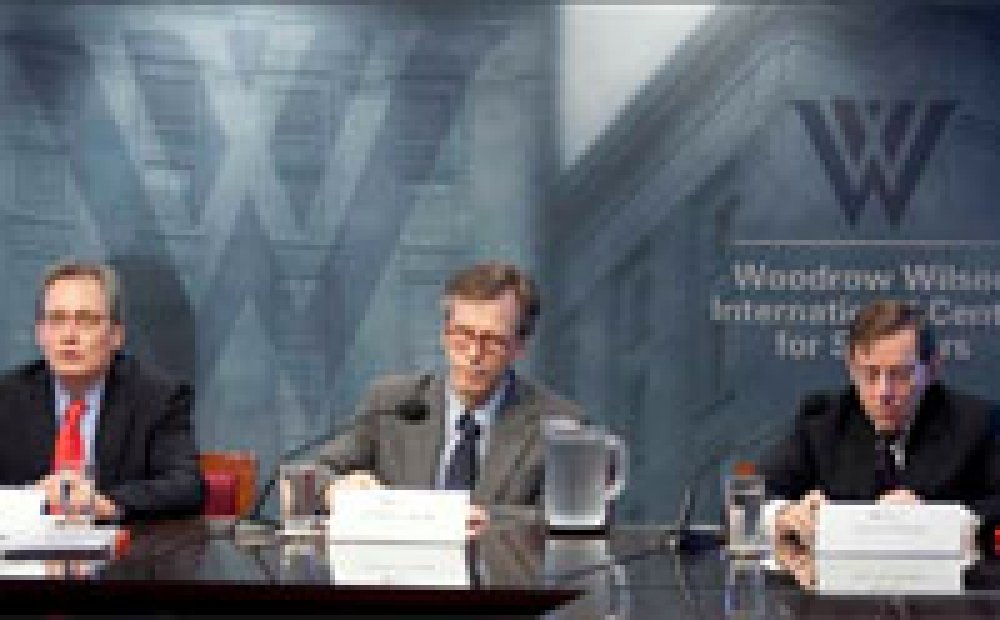The Sixth Crisis: Iran, Israel, America, and the Rumors of War

Authors: Steven Simon , Adjunct Senior Fellow, Council on Foreign Relations; Dana Allin, Senior Fellow, International Institute for Strategic Studies
This event was co-sponsored by the Woodrow Wilson Center's International Security Studies and Middle East Program.
Simon and Allin argue that the challenge posed by Iran's nuclear program is the sixth in a series of crises that have "drawn America progressively deeper into the Middle East." The prior five crises were: the 1956 Suez Crisis, the 1967 and 1973 Arab-Israeli Wars, the 1979 Islamic revolution in Iran, the 1991 Gulf War, and the 9/11 terrorist attacks and the resulting wars in Afghanistan and Iraq.
Against the backdrop of possible Israeli or American military action to halt Iran's nuclear program, Simon and Allin view this "sixth crisis" as qualitatively different for the United States, having "perhaps the greatest potential to undo Obama's ambitions abroad [and] wreck his domestic plans at home." The authors agree with the basic premises upon which the Obama approach toward the Middle East is based, and hold that consequences of going to war would be worse than not going to war, even if that means living with the consequences of Iran's emerging nuclear capability.
As an alternative to military action, Simon and Allin recommend a strategy of containment and deterrence. Such a strategy would have three key elements: U.S. conventional military power, a deterrent posture with "red lines" to circumscribe Iran's program, and a political/ideological component to reassure allies and counter Iran's regional policies. The Israel-Palestine issue affects the overall regional environment in which the nuclear diplomacy with Iran is playing out; the authors liken it to "trying to shingle a roof during a hurricane."
Iran has already crossed a major technological threshold through its Uranium enrichment program. That capability creates an inherent hedge for a weapon and thereby frustrates U.S. efforts to set and enforce a red line to deter nuclear acquisition. The urgent question is whether the Israelis may feel compelled to act militarily under these conditions, if only to buy time.
Simon and Allin noted an "ironic convergence of strategies" between the United States and Iran; both would like to "kick the can [i.e., the nuclear issue] down the road" and avoid a showdown. They pointed to technical problems that the Iranians have confronted in their efforts to master Uranium enrichment technology. Press reports suggest that the current slowdown is the result of effective U.S. export control policies (denying Iran key components) and covert operations by secret intelligence services that have sabotaged Iran's cascades of centrifuges for uranium enrichment.
There are "no simple solutions," Simon and Allin conclude, "only bad options and disastrous ones."
Robert Litwak, International Security Studies
Speakers
Hosted By

Middle East Program
The Wilson Center’s Middle East Program serves as a crucial resource for the policymaking community and beyond, providing analyses and research that helps inform US foreign policymaking, stimulates public debate, and expands knowledge about issues in the wider Middle East and North Africa (MENA) region. Read more
